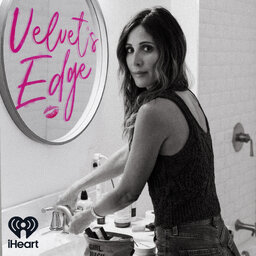If You’re Breathing, You Probably Have Triggers (The Edge)
Let’s be real—if you’re a human in the world, you’ve probably been triggered. In this episode, Kelly and Chip unpack what emotional triggers actually are, why they show up, and how they can be surprising (and even helpful).
Chip shares some honest moments about realizing his own triggers—and the shame that came with not seeing them sooner. Kelly reframes triggers as signs from our nervous system, not personal failures.
From emotional spirals over texts to unexpected aha moments, this episode will help you feel a little more normal—and a lot more self-aware.
Watch us on YouTube! (By clicking this)
Email us: theedge@velvetsedge.com
HOSTS:
Kelly Henderson // @velvetsedge // velvetsedge.com
Chip Dorsch // @chipdorsch
In 1 playlist(s)
Velvet's Edge with Kelly Henderson
The Velvet's Edge Podcast is an invitation to explore the beautiful, messy truth that real growth is…Social links
Follow podcast
Recent clips

Is This a Phase or a Pivot? Navigating Change, Burnout & Doing Life Differently (The Edge)
49:51

February Astrology 2026. New Moons, Saturn in Aries & What’s Being Rebuilt with Master Astrologer Marvin Wilkerson (The Velvet)
36:55

Confront: A Monthly Reflection (The Edge)
44:59
 Velvet's Edge with Kelly Henderson
Velvet's Edge with Kelly Henderson